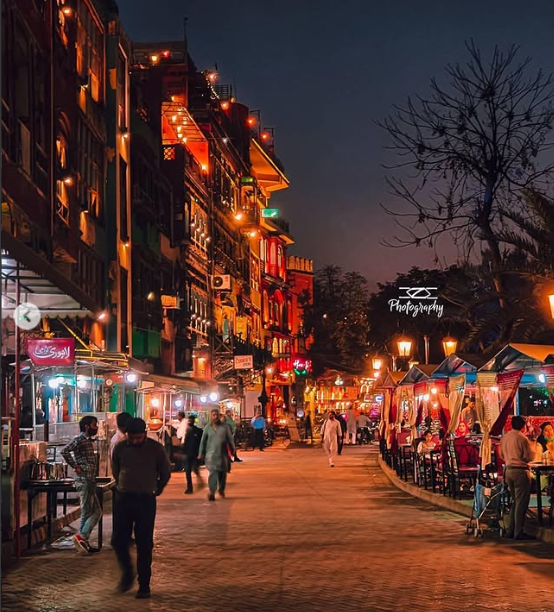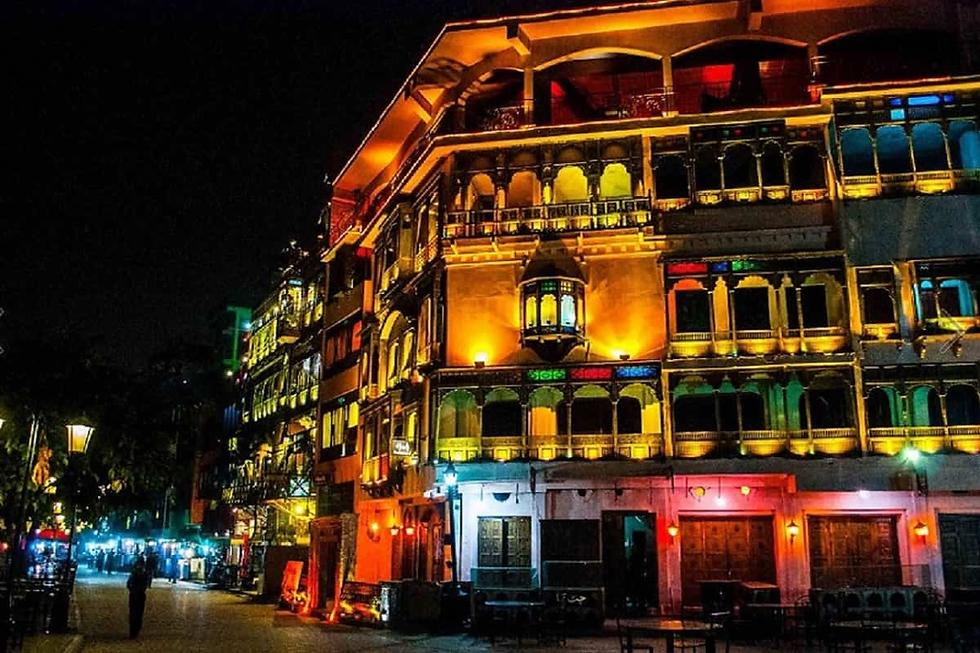Letters of Permission (or lack thereof)
- zainfaridr
- Apr 8, 2025
- 3 min read
Updated: May 11, 2025
Securing Access to Walled City Lahore
One of the most ambitious sequences in The Executioner was filmed in the historic Walled City of Lahore, specifically on the iconic Food Street near Fort Road. While the location offered stunning visuals and cultural depth that perfectly matched the tone of the film, gaining access to it turned out to be more complicated than expected.

Food Street is a semi-restricted area. It is cordoned off from vehicular traffic, guarded at entry points, and subject to strict filming regulations. What I didn’t know at the time was that no filming equipment is allowed past the gates unless prior written permission is obtained from the Walled City of Lahore Authority. Unfortunately, I discovered this only on the day of the shoot... with my cast, crew, and gear all ready to go.
Rather than panicking or rescheduling, I decided to handle the situation head-on. I asked to be taken to the site manager’s office and requested a direct conversation. After explaining that this was a student film with no commercial intent and walking him through the purpose of the shoot, he remained firm on the protocol of needing to apply in advance.
That’s when my mother, who was with us that day, helped facilitate the conversation. As a senior academic and a globally established artist who had previously collaborated with the WCLA on cultural projects, she was able to vouch for the integrity of the shoot. Once they were reassured of our intent and professionalism, we were granted permission on the spot, along with official escorts who accompanied us through the area, ensuring the safety of our crew and our equipment.
It was a challenging moment, but one that reminded me of how important clear communication and persistence are in film production. Sometimes things don’t go as planned, but you adapt and overcome. A very popular reference, those who know, know.
Location Permissions
The rooftop and balcony sequence in Act I was shot at a private floor of Haveli, a well known restaurant in the Walled City of Lahore. To shoot there, I approached their manager directly and presented my case as a student filmmaker. After a brief conversation explaining the project’s nature, tone, and logistics, the management granted verbal permission and allowed access to their private floor. While not a formal document, this verbal clearance was given in good faith and trust, under the agreement that we wouldn’t disrupt the regular flow of customers or restaurant staff.

For Day 2, the apartment location was lent to us by a close family friend. Although the arrangement was informal, I treated it with the same level of responsibility and professionalism as a formal location contract. We ensured that nothing was damaged and followed all house rules while filming. This was made possible after a verbal agreement, but out of courtesy and clarity, I shared the day’s schedule and shoot breakdown with the apartment owner ahead of time to make sure everything was transparent.
Music and Assets
All soundtracks and audio elements used in the film were either sampled and designed by me or taken from royalty-free sources like Envato Elements and 4rtlist. These platforms provide licensing for creators, meaning I didn’t require any direct letters of permission to use the music legally. I took additional care to only use tracks that were labeled with universal licensing rights to avoid any copyright issues down the line.
On-Camera Consent
All actors involved in the film were either personally known to me or brought on through acting calls. Before filming, each participant was briefed on the film’s themes and any potentially sensitive scenes. While formal written release forms were not used, all actors gave clear verbal consent for their footage to be used and distributed as part of a student project.



Comments